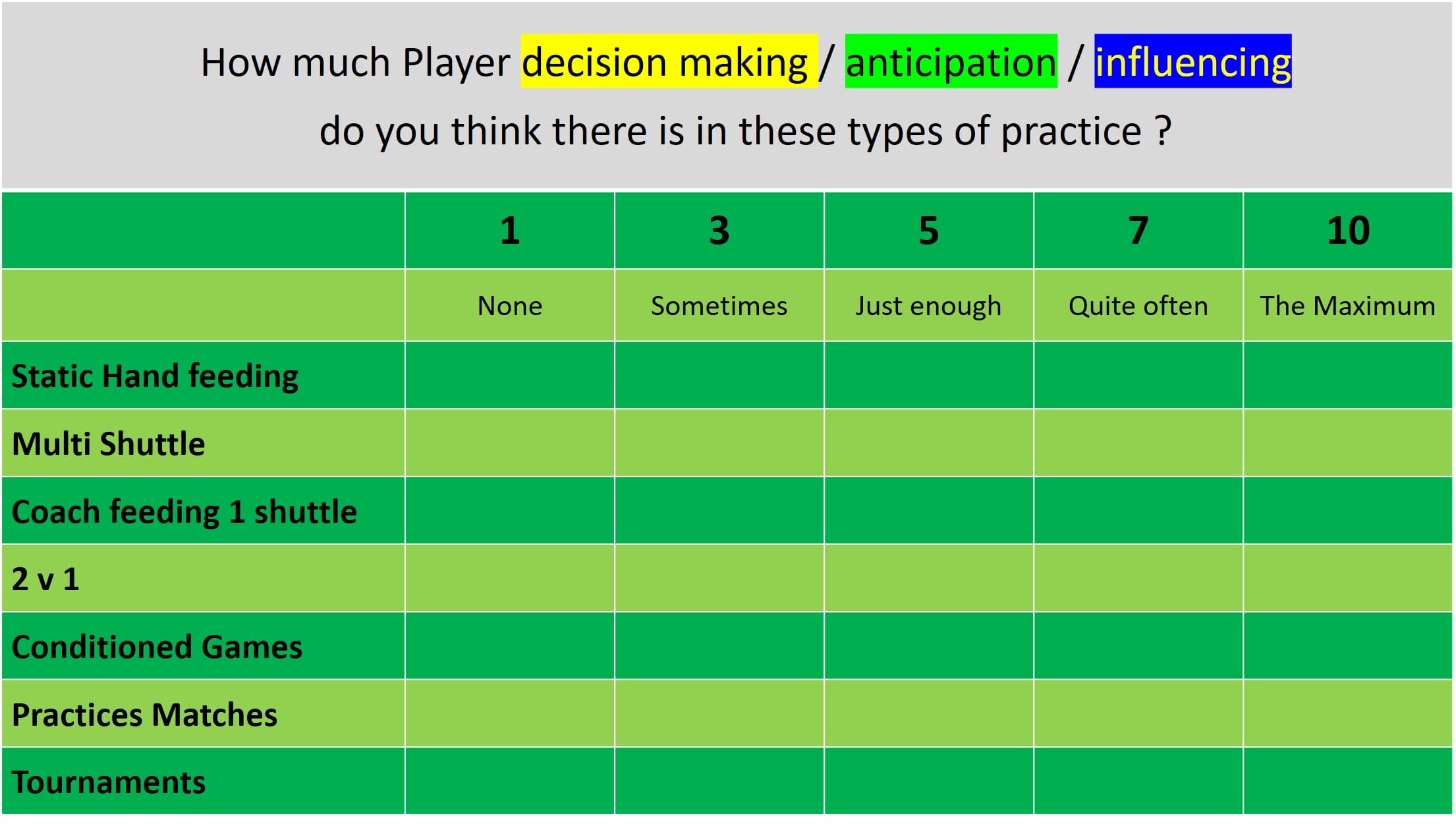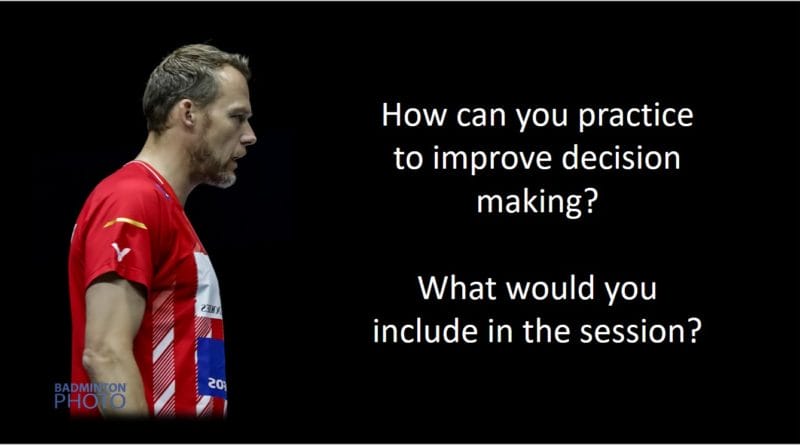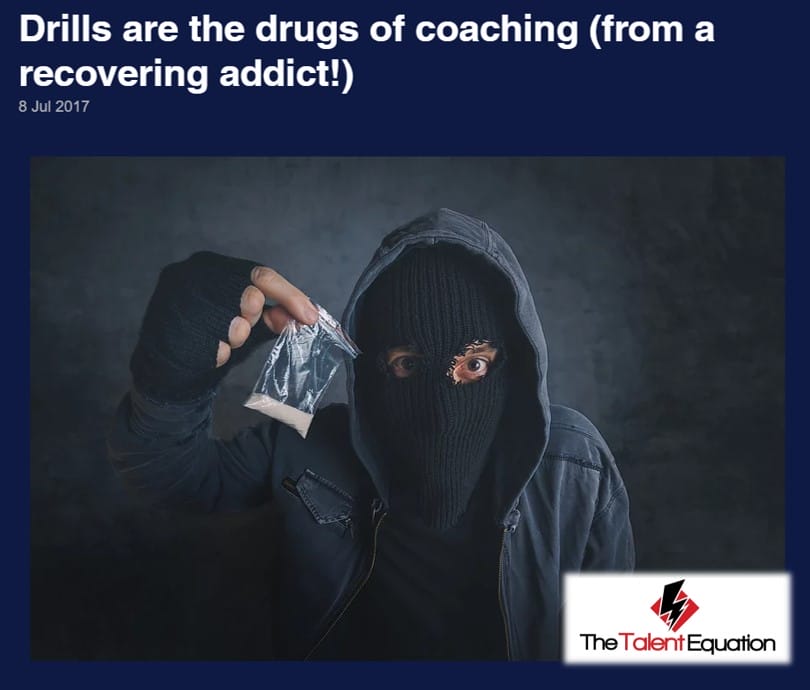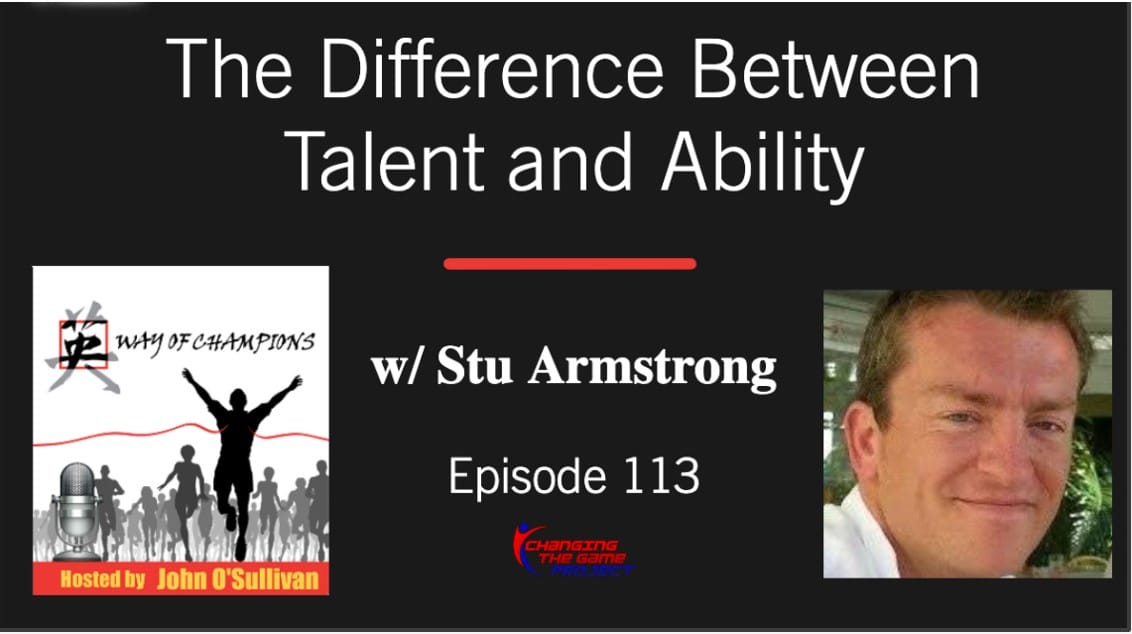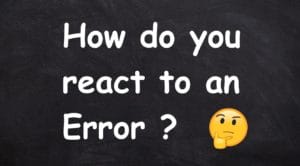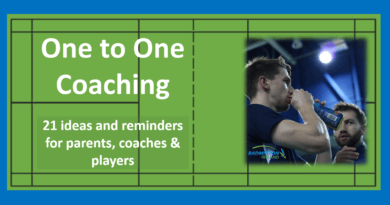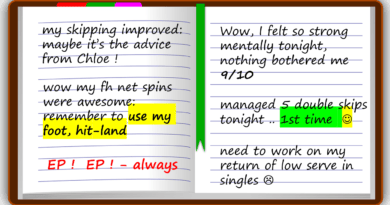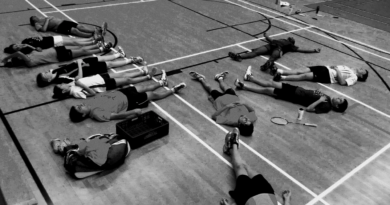Decision making practices – Recommendations for Coaches
How often do you work on improving your player’s decisions making skills?
You may be great at developing technical or physical aspects, but do you work on decision making?
What are the skills needed to become better at anticipating, influencing and gaining an advantage over an opponent?
Coaches need to incorporate decision making practices into all their sessions. Once a player reaches a level of technical competency in that specific technical skill its vital to include some decision making practices. Competition is full of decisions, so what not practice!
I believe that you should include decision making elements much earlier than most coach education courses recommend
Aim to develop Players who love the thrill of trying to beat opponents
Not just by hitting perfect strokes but by making great choices and plans
Players who say “its easy to read what xxxx does and I know how to use that”
– – – – – – – – – – – – – – – – – –
The problems we all face
What is Decision Making
6 elements I think your Players need to become great at
include them in almost all your practices
How to Practice and develop great anticipation and intentional influencing skills
– – – – – – – – – – – – – – – –
The problems we all face
- Where will you get training and education on how to incorporate decision-making opportunities into your practices?
- What are the critical elements to include in your sessions?
- There were the problems I faced and yes I was confused, you may be to
- In the beginning, I was completely unaware that it would help my players if I included decisions into the practices.
- I had no idea that this was even a skill that could be practised and targeted
- I thought that just mastering strokes would be enough
- I assumed that a technically perfect player would become a winning player
It was not until I met Roger Mills (my mentor) that I became aware of the importance of allowing for and deliberately including real game-like aspects into almost all practices.
He recommended that this should start to happen as soon as some part skill had been established. I found out that this meant working with novice players very early in their development. I know now to include game-like decision making from the very first lesson if I see an opportunity.
I realised that there were many opportunities when anticipation and influencing skills could be developed
– – – – – – – – – – – – – – – –
What is Decision Making
Before you try out these tips below it’s important to understand what I mean by decision making
I certainly don’t just mean deciding where to hit the shuttle. Yes, that is important but it’s far more than that.
We must create lots of opportunities that encourage players to see and anticipate,
be able to intentionally influence the rallies within a practice,
and then make informed choices

– – – – – – – – – – – – – – – –
6 elements I think your Players need to become great at
- Being able to ‘see’ / ‘feel’ what your opponent is about to do before they strike the shuttle
- Understanding what could happen before they play a stroke: anticipating how it will affect their opponent
- Being confident in their ability to intentionally affect the opponent: restricting their choices, almost knowing their likely replies, forcing the opponents to react when they don’t want to.
- Accepting that sometimes they will feel uncomfortable and may not make the right decision
- Accepting and loving the fact that they can intentionally influence practice rallies, even technical practices
- Understanding that Decision Making/ Anticipating and Influencing skills can be improved
– – – – – – – – – – – – – – – –
Decision-making skills are subtle skills, include them in almost all your practices
Assess your Practice
Don’t forget to try the quiz at the end of the post. It will help you assess how much of your current practice is good for developing on-court decision and anticipation skills.
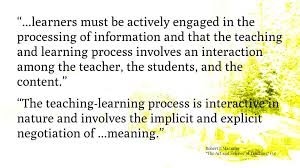 They are essential skills but they can be difficult to measure and difficult to see improvements. However, they often the difference between players on court.
They are essential skills but they can be difficult to measure and difficult to see improvements. However, they often the difference between players on court.
We need to develop those “in rally” skills and help players experience that feeling of “knowing” and anticipating what is about to happen.
I recommend that you allow for and include elements of player decision making in almost all practices. This aim does not have to be the main theme just implicit in almost all you do.
A 12yr old I coached whilst practising backhand defensive blocks with me smashing
suddenly hit a net drop instead of a flick at the start of the practice.
They stated, “I could see you were moving back so why would I flick?”
– – – – – – – – – – – – – – – –
How to Practice and develop great anticipation and intentional influencing skills
The following advice is for your consideration.
You don’t have to follow it. Hopefully, you find some ideas to include in practice that will help develop your players’ decision-making skills. Generally, try to use as many practices as possible that are game-related and realistic to a real game
Design practices that aspire to these aims …..
- Have an element of real gamelike uncertainty or unpredictability (when some establishment of skill has been achieved and is desirable in that practice)
- Require decision making by one of both players within the practice (real game like decisions)
- Allow players to believe that this situation really exists in a game. Check it actually does AND is relevant to their level of play or just above
- Encourage players to anticipate (guess) outcomes
- Try NOT to dictate a regimented outcome: ie all blocks will land before the service line. Allow for tactical choice by the player: ie good tight blocks will draw opponents in but also allow opponents to play net spins, therefore long blocks negate net spins… Choices!
- Have both players hitting and moving, learning. Maybe one more than the other. It’s not essential to have a static feeder for all practices. Try using 1 shuttle 🙂
- Look for practices that ensure opponents move only when they anticipate
- Allow/encourage winners to be played, this is vital
- Encourage players to make it difficult for the feeder, ask them to do this intentionally
- Motivate and arouse players to want to improve. Create ‘active minds’
Be aware of how much you include these elements …
- Routines and drills where everyone knows what is happening – try to reduce the amount ‘knowns’ in any practice. ie a multi smash-net kill x 15 will not improve your anticipation. However, it will help with physical training
- Hand-feeding – Racket preparations can “tell” a player so much in a match so why not use that in practice and reduce the amount of hand feeding
- Static ‘perfect feeding’ where the player gets to everything. Are you intentionally holding your feed so the player must to it? 🙁
- Using 2 or more shuttles, so that the player rarely experiences how the opponent may return the shuttle
– – – – – – – – – – – – – – – – – –
Summary
.. Play MATCHES …. lots of matches
.. Include choices and variability even the simplest of practices
.. Encourage and reward players for anticipation and influencing what happens in the practice
.. Don’t allow players to become a ‘passenger’ in the practice. they need to be actively leading
.. Allow players to start most of the practices yourself. They’ll need the shuttle to start.
.. Encourage players to be actively anticipating before they strike the shuttle, it’s essential
– – – – – – – – – – – – – – – – – –
Want to read more?
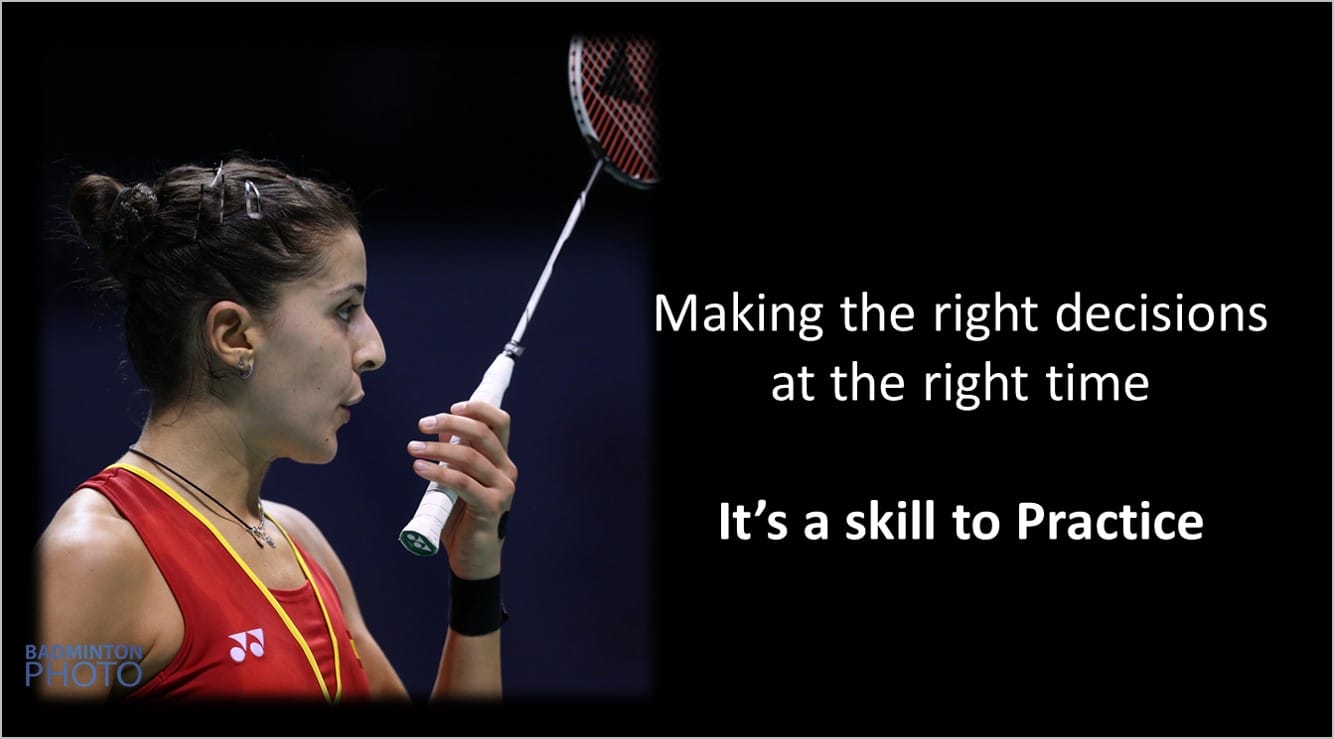
– – – – – – – – – – – – – – – –
Background Reading
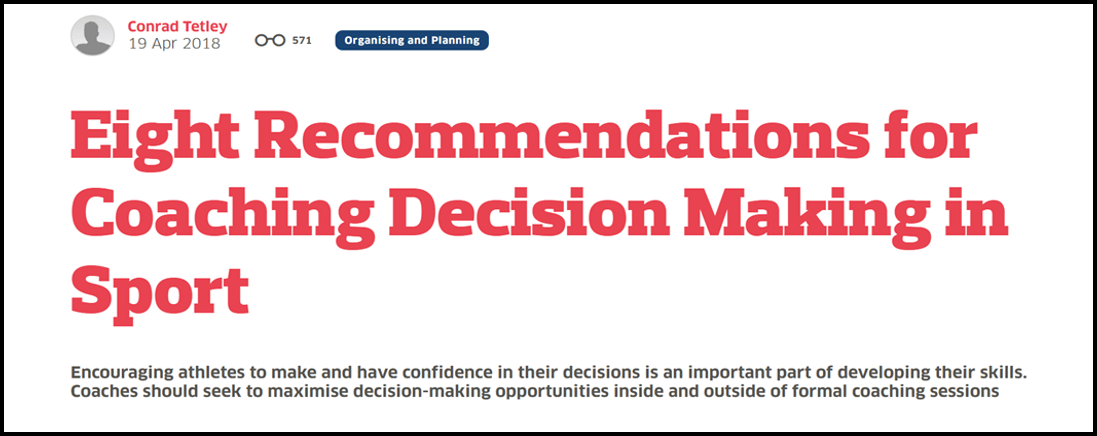 Encouraging athletes to make and have confidence in their decisions is an important part of developing their skills. Coaches should seek to maximise decision-making opportunities inside and outside of formal coaching sessions
Encouraging athletes to make and have confidence in their decisions is an important part of developing their skills. Coaches should seek to maximise decision-making opportunities inside and outside of formal coaching sessions
Whilst some believe excellent decision-makers are born, in most cases, effective decision-making comes from many hours of deliberate practice. Therefore, coaches should seek to maximise decision-making opportunities in their coaching both inside and outside of formal coaching sessions.
Click on the link to read the 8 suggestions that coaches can use to stimulate decision making
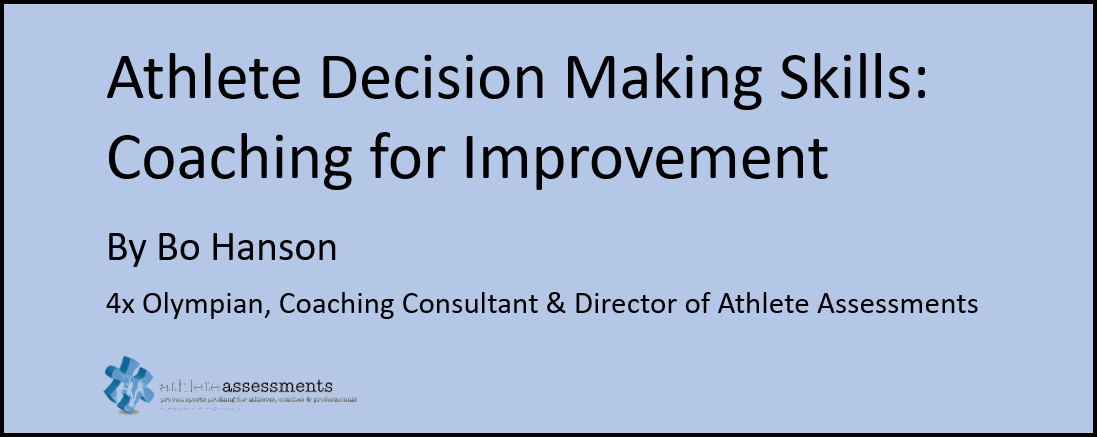 Decision making is closely linked to problem-solving. Some athletes will find that making the right decisions at the right time is a well-developed skill for them, whilst others find this process more challenging.
Decision making is closely linked to problem-solving. Some athletes will find that making the right decisions at the right time is a well-developed skill for them, whilst others find this process more challenging.
Effective decision-makers can still focus more on improving the quality of their decisions. Other athletes, who are less effective decision-makers, are often able to make quality assessments but need to be more decisive in acting upon the assessments in more pressured situations of a game or competition.
Click on the image to read about a process of six key steps
 The Talent Equation
The Talent Equation
“Unopposed drills are the drugs of coaching”
Why are some coaches so addicted to drills? A lot of coaches are addicted to them they are like alcoholics or maybe ‘drill-aholics’, they just can’t get away from the lure of the drill.
Deep down, they know that the drill is not doing their athletes any good but they keep getting called back to them…it makes them feel better…it offers warm relief…it is safe…they can feel good about themselves.
– – – – – – – – – – – – – – – – – –
Some great listening
– – – – – – – – – – – – – – – –
Warnings
Here are a few things to consider that may explain why your players don’t anticipate as well as you would like
Your players don’t play enough matches in Practice or experience competition like feelings
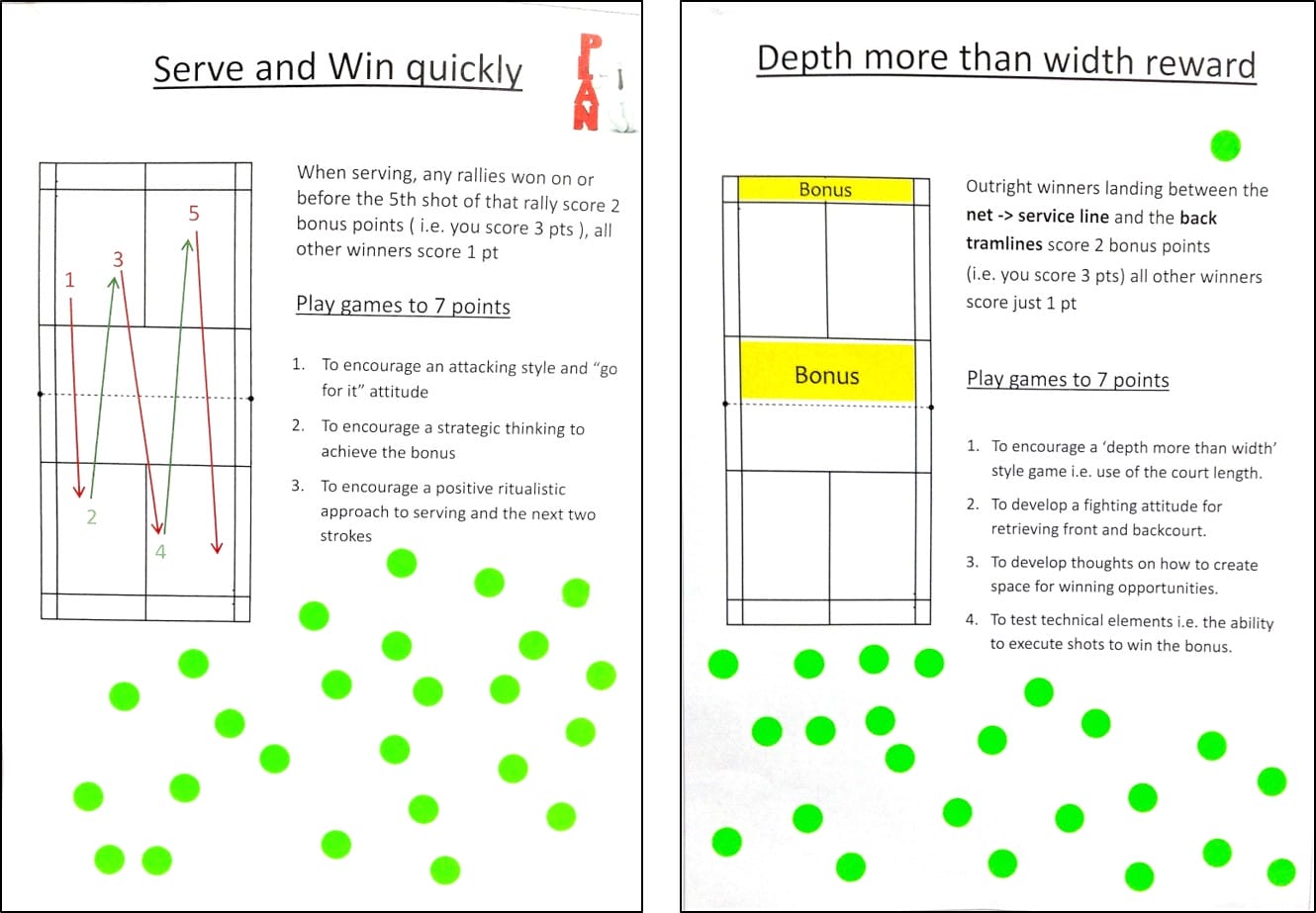 Play matches, all sorts of matches, even 2v1 will help. I especially like both Conditioned games and Open Challenge matches where it’s important to try and win!
Play matches, all sorts of matches, even 2v1 will help. I especially like both Conditioned games and Open Challenge matches where it’s important to try and win!
Players must try to win (or gain an advantage) in Technical Practices
Do not allow players to become happy just hitting shuttles over. There is so much more to practice than just returning the shuttle and ‘waiting’ for the next.
Encourage players to always be thinking about seeking and imagining creating an advantage for yourself.
Having an ‘empty mind’ is not acceptable. Be intentional !
Multi shuttle
 If the majority of your players’ practice is multi-feeding then I believe that your players may become technically proficient (not guaranteed) and good at reacting and chasing.
If the majority of your players’ practice is multi-feeding then I believe that your players may become technically proficient (not guaranteed) and good at reacting and chasing.
However, reacting is not the same as anticipating and influencing. Especially if all they are reacting to is just the next feed you hit and you never return any shuttles they hit.
Using static repetitive feeding will help your players technically but it will not develop their game anticipation/influencing skills
How will you allow your players to intentionally influence the rally?
Especially if there is no rally (click the shuttle image to read more about multi-shuttle practices)
There is so much more to practice than just returning the shuttle and trying to perfect a stroke
Do you agree?
Mistakes and Perfection
Please don’t try for “Perfect Practice”, especially if you are aiming to improve your players’ anticipation/influencing skills.
It’s almost impossible to try for ‘perfection’ in practices that are designed to improve the different aspects of decision making.
Click this image to read about how the worlds best players react to errors.
In practices where players can anticipate and make intentionally make decisions, they will make more mistakes than most of the other practices
How players react to these ‘mistakes’ will have an impact on their development
– – – – – – – – – – – – – – – –
Quiz Time
